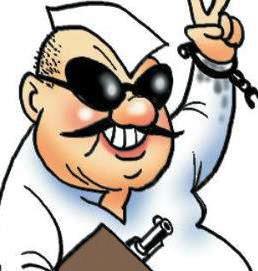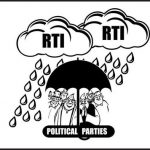Batu Gajah Issues related to the criminalization of Indian politics are well known. Political parties are obsessed with winning elections, and have always provided tickets to candidates who are most likely to win – irrespective of a candidate’s ability to be a competent legislator.
All data is courtesy Association for Democratic Reforms (ADR).
To better understand the magnitude of this problem, we looked at what our nationally recognized political parties have been doing since the last Lok Sabha election. The elections (total 17) analyzed are:
- 2014 – Lok Sabha, Jharkhand assembly, Jammu & Kashmir assembly, Haryana assembly & Maharashtra assembly
- 2015 – Bihar assembly & Delhi assembly
- 2016 – Assam assembly, Kerala assembly, Puducherry assembly, Tamil Nadu assembly & West Bengal assembly
- 2017 – Goa assembly, Punjab assembly, Uttarakhand assembly, Manipur assembly & Uttar Pradesh assembly.
unambitiously During these elections, our nationally recognized political parties, gave a whopping 2,245 tickets to candidates with pending criminal cases!
Here is the party-wise breakdown of how many tickets were given to candidates with pending criminal cases:
- All India Trinamool Congress (AITC):107 tickets (25% of all tickets)
- Bhartiya Janta Party (BJP): 775 tickets (32% of all tickets)
- Bahujan Samaj Party (BSP): 385 (24% of all tickets)
- Communist Party of Inda (CPI): 106 (31% of all tickets)
- Communist Party of India – Marxist (CPM): 213 (45% of all tickets)
- Indian National Congress (INC): 494 (27% of all tickets)
- Nationalist Congress Party (NCP): 165(38% of all tickets)
The graph below, further characterizes those candidates who have ‘serious’ pending criminal cases. As per ADR, these cases include offences which meet any of the following criteria – have maximum punishment is of 5 years or more; non-bailable offences; electoral offences (for eg. IPC 171E or bribery); related to loss to exchequer; classified as assault, murder, kidnap, rape related; mentioned in Representation of the People Act (Section 8); classified under Prevention of Corruption Act; classified as crimes against women.
While our political parties are to take most of the blame for these trends – we, the voters are only too happy to elect candidates with pending criminal cases. The graph below shows that for all parties, their candidates with pending criminal cases are more likely to win elections as compared to ‘clean’ candidates (those with no pending criminal cases).
Political parties remain completely opaque in the way that they function. Citizens (and even most party members) have no insight into ticket distribution and how political parties are fulfilling their mandates of public service. Over the past few years, most efforts made to increase transparency in the way political parties function have been quashed by the government and all nationally recognized political parties.
Citizens on their behalf, are obsessed with silver-bullet solutions. We assume that one Modi or one Kejriwal will magically save the country. The system remains rotten, and we continue to feed the system with incapable MLAs and MPs who will always prioritize political convenience over public welfare.
 Copyright secured by Digiprove
Copyright secured by Digiprove




Criminals are ruling the country these days.